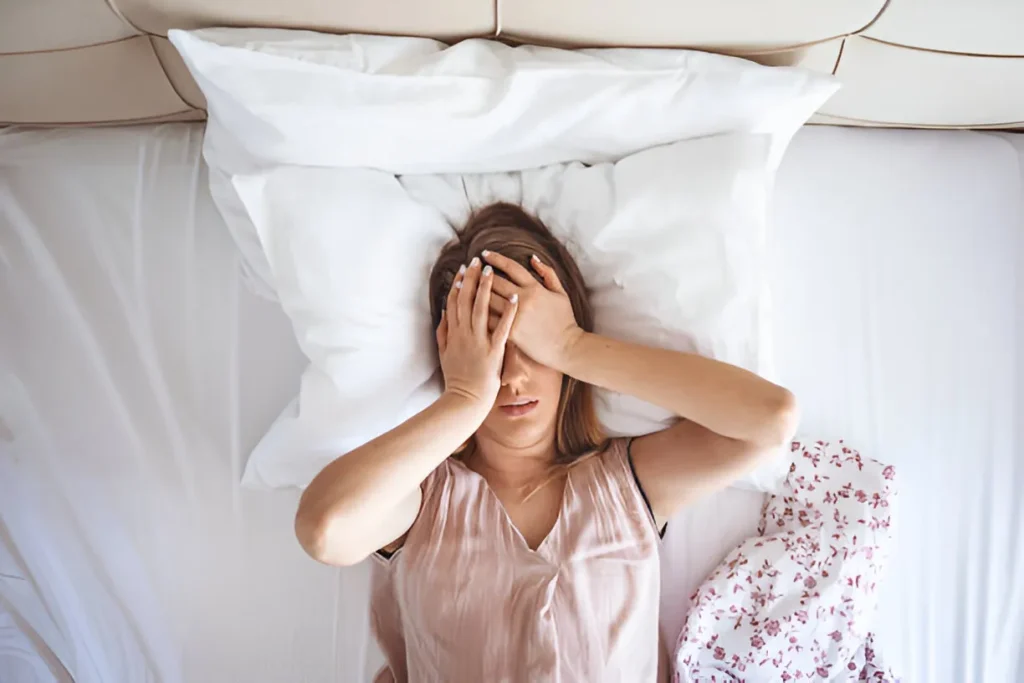A good night’s sleep is essential for both physical and mental well-being. Yet, for many people, restful sleep remains frustratingly elusive. Night after night, they toss and turn, wake frequently, or struggle to drift off altogether. Often, the culprits behind this disrupted rest are subtle, creeping into our lives quietly and wreaking havoc on our sleep cycles without us even realizing it. These are the silent sleep stealers—common, often overlooked factors that disturb our rest.
1. Stress and Anxiety
One of the most common causes of sleep disturbances is stress. Whether it’s related to work, finances, relationships, or health, stress can keep the mind racing long after the lights go out. Anxiety amplifies this effect, making it even harder to fall and stay asleep. When your brain is locked in a state of worry or alertness, the body struggles to enter the deeper stages of sleep necessary for true rest.
Solution: Try practicing relaxation techniques such as deep breathing, meditation, or journaling before bed. Creating a calming bedtime routine can help signal to your body that it’s time to wind down.
2. Screen Time Before Bed
In our digital age, screens are everywhere—from phones and tablets to TVs and laptops. Unfortunately, the blue light emitted by these devices suppresses melatonin production, the hormone that regulates your sleep-wake cycle. Even just 30 minutes of screen time before bed can delay sleep onset and reduce sleep quality.
Solution: Aim to shut off screens at least an hour before bedtime. Consider reading a book, listening to calming music, or doing light stretches instead.
3. Caffeine and Alcohol Intake
Many people rely on caffeine to stay alert during the day, but consuming it too late can interfere with your ability to fall asleep. Similarly, while alcohol might initially make you feel sleepy, it disrupts REM sleep and leads to more fragmented rest later in the night.
Solution: Limit caffeine intake after mid-afternoon, and if you drink alcohol, do so in moderation and avoid it close to bedtime.
4. Poor Sleep Environment
Sometimes, the very space where you sleep is the root of the problem. A room that is too hot, noisy, or brightly lit can make it difficult to relax. Even something as simple as an uncomfortable mattress or pillow can lead to tossing and turning.
Solution: Optimize your sleep environment by keeping your bedroom cool, quiet, and dark. Invest in comfortable bedding and consider blackout curtains, white noise machines, or earplugs to improve your sleep setting.
5. Irregular Sleep Schedule
The body thrives on routine. Going to bed and waking up at different times each day can confuse your internal clock, making it harder to fall asleep and wake up naturally. This inconsistency is especially disruptive for shift workers and frequent travelers.
Solution: Try to maintain a consistent sleep schedule—even on weekends. This helps regulate your circadian rhythm and promotes better sleep quality over time.
6. Underlying Medical Conditions
At times, ongoing sleep disturbances may be linked to deeper health concerns. Issues like sleep apnea, restless leg syndrome, chronic pain, and acid reflux are known to interfere with restful sleep. Hormonal imbalances—particularly in women—can also play a major role in disrupting healthy sleep cycles. Another often-overlooked contributor is adrenal fatigue, which can throw off your body’s natural rhythms and energy levels.
Solution: If lifestyle adjustments haven’t improved your sleep, it’s wise to seek professional guidance. A medical evaluation or sleep study can help uncover hidden conditions. For those in Utah, exploring adrenal fatigue treatment in Salt Lake City may offer targeted support to restore hormonal balance and promote better rest.
7. Diet and Late-Night Eating
Heavy or spicy meals close to bedtime can lead to indigestion and disrupt sleep. High-sugar snacks can also cause blood sugar spikes and crashes that affect your ability to stay asleep.
Solution: Try to finish eating at least 2–3 hours before bed. Choose lighter, sleep-friendly snacks if you’re hungry late at night—think bananas, oatmeal, or a small handful of almonds.
8. Lack of Physical Activity
A sedentary lifestyle can make it harder to feel naturally tired at night. Regular physical activity promotes deeper sleep and helps reduce stress and anxiety, which are common sleep disruptors.
Solution: Incorporate daily movement into your routine—whether it’s walking, yoga, or more vigorous exercise. Just avoid intense workouts too close to bedtime.
Final Thoughts
Sleep is as vital to our health as food and water, yet modern life is filled with silent sleep stealers that creep into our routines unnoticed. By identifying and addressing these common causes, you can reclaim your nights and wake up feeling truly refreshed. Quality sleep doesn’t just happen—it’s built on consistent habits, mindful choices, and an environment that nurtures rest.
If you’ve tried adjusting your habits and still struggle with sleep, don’t hesitate to reach out to a healthcare provider. Sometimes, solving sleep problems requires more than just willpower—it takes a tailored plan and professional support.
Also Read: 7 Effective Ways to Support Your Health Transformation with Trusted Care
